Take a trip through some incredible locations on this great continent with Coffee Sustainability Manager at TriBeCa Coffee and all round adventurer, Matt Carter to explore how coffee is drunk around Africa
Words and Images by Matt Carter
Rushing through the streets of Moshi, Tanzania, I’m trying to get to a meeting on the other side of town, hawkers shouting their wares and local sales guys trying to sell me art and trinkets. It is hot and very humid with the equatorial sun giving me instant sunburn. Then a familiar aroma pushes its way through all the other smells and welcomes me home in a most delightful way, coffee!
This isn’t the coffee of the high street cafe or the trendy hole in the wall coffee shop at the corner this is coffee done the traditional way, the way it has been done for hundreds of years.
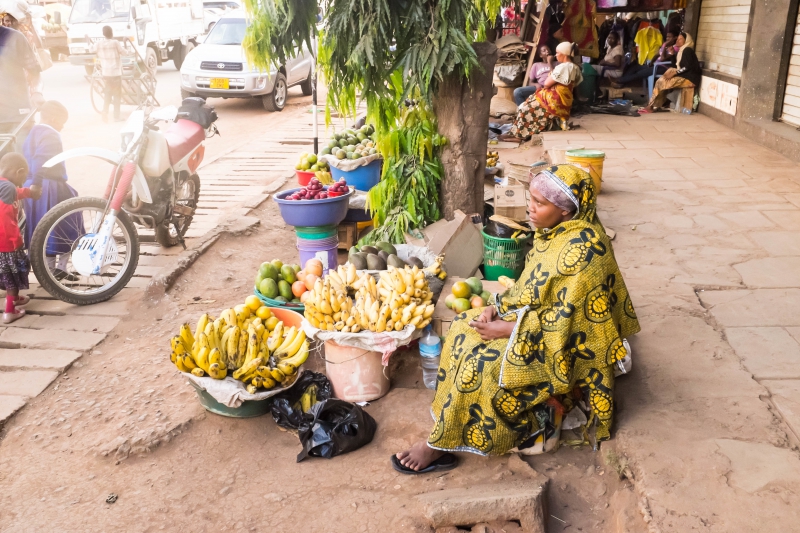
It’s delightful! I don’t really have time, but while the Swiss may have invented the clock, Africa owns its own time, so I choose to pause and buy a coffee and some sweet peanut brittle that accompanies the brew. It is still so hot that it burns my tongue a little bit, I look down the street and I can see Kilimanjaro breaking through the clouds just to have a look and see what we are all up to. The kids walking past shout “mzungu” (white person) and the sales team trying to get me into the market all calling “rafiki” (friend) and as I stand there sipping my coffee, I am content and I understand why people throughout Africa brew their coffee like this.
If you wanted to repeat this process at home, you will need the following:
A small farm where you can plant, grow and sell some coffee from.
An old pestle and mortar to hull your coffee with.
A clay pot on an open fire to roast your coffee with.
A second pestle and mortar to grind your coffee.
A small charcoal stove
An aluminium kettle (ideally really old and battered)
Take about one and a half hand full of coffee (the coffee grown on your farm!) and hull it using a pestle and mortar.
Roast it surprisingly well in a clay pot over an open fire till golden brown.
Grind it in a separate pestle and mortar till “it looks right”
Place into pot with cold water and bring to boil.
Move over to charcoal stove to keep hot
Pour and serve throughout the day.
Objectively this coffee is really not so great; over extracted, burnt, bitter…Subjectively sitting here right now, it’s the best coffee on earth. The sights, smells and sounds bring it all together in a beautiful and unique way that cannot be explained in a Coffee Quality Institute speciality score sheet or in a barista competition.
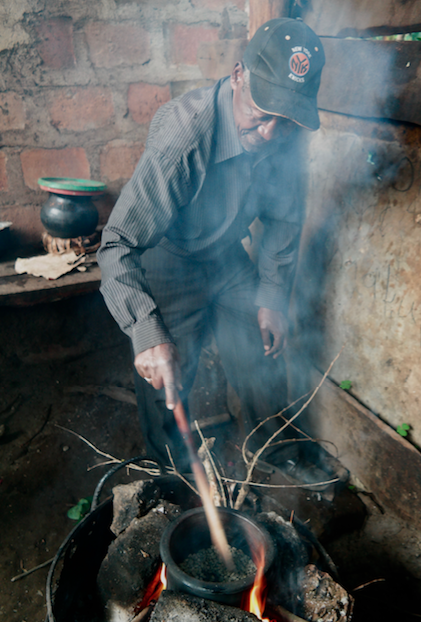
Going up the road into the foothills of Kilimanjaro I had coffee with a coffee farmer named Edmond. He farms in the Uru area and is in his sixties but still as strong as an ox! He made me a fresh cup of coffee after showing me around his farm.
Now I normally don’t have any coffee after 2pm otherwise I don't sleep, but sitting with Edmond on his farm at 7pm and sharing a great dinner I decided to break my rules.
The coffee hulling, roasting and grinding was done exactly the same as mentioned above except when it got to the brewing the hot water was added to a flask and then the coffee added into the hot water. It was left to brew for 4 minutes and then strained through a plastic tea strainer. I added half a teaspoon of sweet brown sugar and the coffee took on a delightful caramel, toffee and cinnamon flavour. It was lovely!
To counter the effect of the caffeine, I had a bottle of a local white spirit in my bag called Konyagi and I poured a generous amount into a glass for Edmond and me.
I don’t know if it was the moment or the Konyagi but I really felt that while I am the first to appreciate a well roasted and brewed coffee back home and will drink a cortado with the greatest of ease, I couldn’t help wondering if we had made it too complex and possibly inaccessible?
Coffee may not be the most drunk beverage in most African countries, but that all changes in one particular nation: Let’s jump on a plane and fly a bit north to where this all started, Ethiopia!
It was shortly after African Fine Coffees Association Expo 2017 when Craig and Fanie of Lineage Coffee and John and I went up Entoto Hill just outside Addis Ababa. We were on our way down when we saw a coffee stall making traditional coffee on the side of the road.
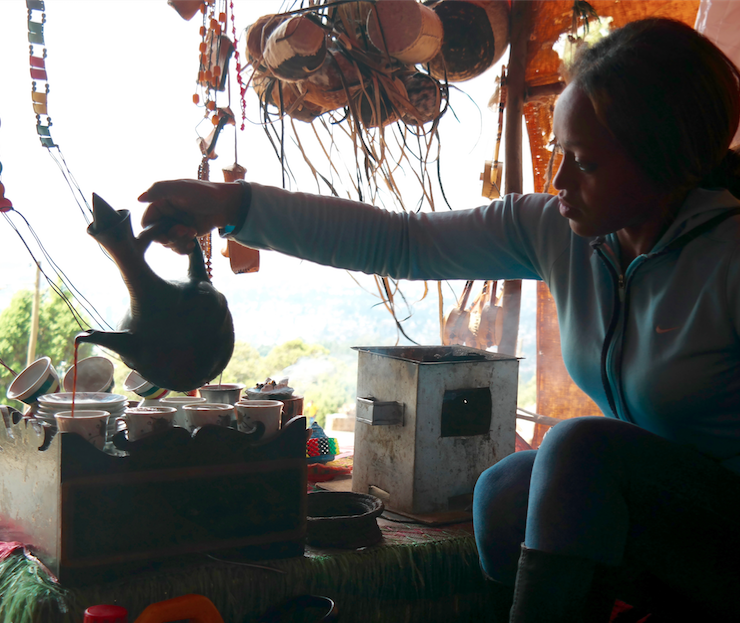
We stopped to have a quick cup of coffee and understand the coffee making process in Ethiopia a bit better.
Entering a small tent, we took our seats and we were treated to a coffee ceremony. The Ethiopian coffee ceremony is almost as old as coffee itself and to experience it is something that coffee people should put on their bucket lists.
It starts with the roasting of the coffee, this is done over a coal fire on a flat clay or steel concave tray. It is kept moving with a stick in the shape of an L. Once roasted it is ground in a pestle and mortar and then placed into a traditional coffee pot called a Jebena with cold water it is then left on the coals to boil. While this is happening, you are offered popcorn and there is incense that is burned to add to an overwhelming sensory overload. Traditionally only women are allowed to perform the ceremony.
The coffee is ready, it is removed from the coals and poured into the cups in one motion never stopping between cups, these cups are small, about the size of an espresso cup but beautifully painted and they have no handles.
In other parts of Ethiopia where I have had the ceremony, I have been offered a variety of condiments to add to my coffee, these have included sugar, salt and a herb that added a granadilla aroma to the coffee when dunked.
So here we are sitting with some amazing people, drinking coffee in it’s believed birthplace, overlooking Addis and that familiar question pops up in my mind… have we over complicated it?
While we are here, we might as well keep going north to Egypt.
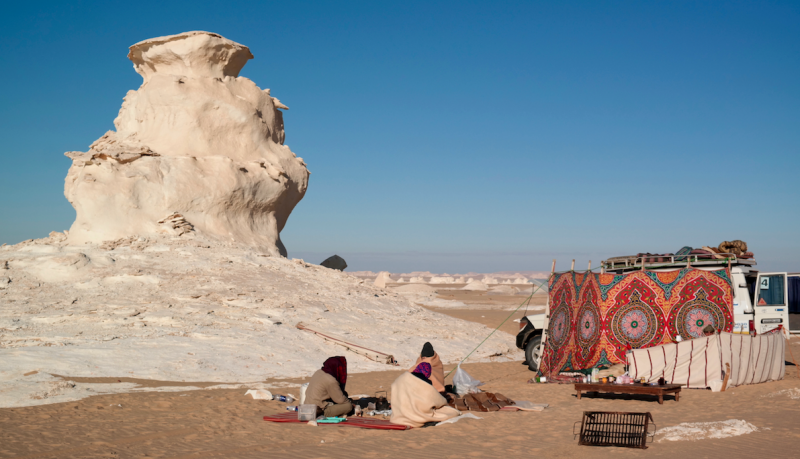
It is 2015 and my wife and I are in the desert with a nomadic tribe called the Bedouins and we have just spent a night in the white desert with scarab beetles and desert foxes. In the morning our guide offers us some coffee. Obviously, I want some coffee! He brings out a copper coffee brewer known as a Ibrik and places it in the coals of last night’s fire. He puts four spoons of coffee and some cold water in and brings it to the boil. He asked if want sugar and we ask for a little bit. He pours it directly into our cups and the grinds mostly stay in the brewer.
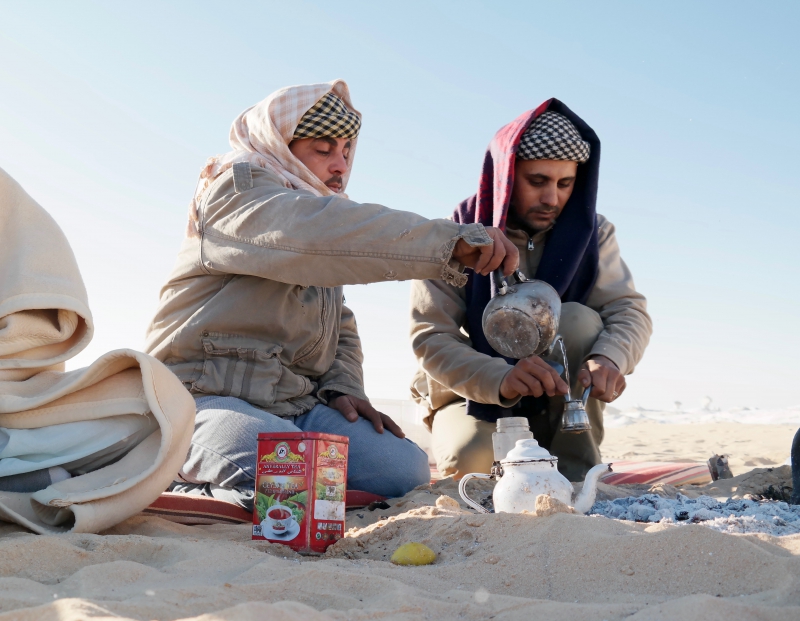
Now we are in a desert in Egypt drinking coffee with an ancient civilization and there is that familiar question… have we over complicated it?
I don’t really know the answer to this question, but I will tell you that while technical information achieved with scales and TDS is nice to know in brewing, sometimes we forget the origins of coffee. Africa is a simple place with so much beauty to be found in that simplicity. Some of the best examples of this can be found when we stop to pause and have a coffee on the side of the road, leaving our preconceptions at home. Maybe for your next brew go for a walk in a park and leave the scale at home. Go make coffee outside, following simple African tradition.